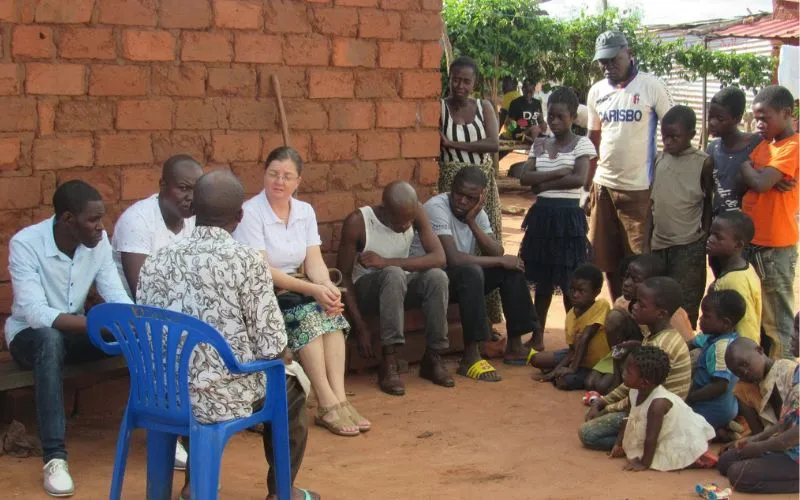She added, “I worked a lot with Muslims. There were meetings I held with people who were not even Catholic. Most of them would be Muslims,” she said, and added, “We've worked on this openness as we, Scalabrinian Missionaries, need to have an open mind and heart.”
According to Sr. Lamperti, the service of the missionaries is not only for a particular group. “The truth is that we will never impose our faith on anyone. We've come to help, to reach out in the way that Jesus taught. Helping all people, regardless of religion or social class, culture or gender.”
The Catholic nun who authored the book titled “Being a Refugee Woman: Challenges of Insertion into the Angolan Labor Market”, called on the Angolan government to “look with care at these people in vulnerable situations, especially the refugees.”
“It's no use opening the country's doors to welcome them if they don't have the necessary documentation or living conditions. Let's implement favorable public policies. Migration policies need to be put into practice, not just on paper, because human life is in a hurry,” she said.
The immediate former Executive Secretary of CEPAMI added, “We can't allow a person to live as a refugee forever. We have to pay special attention to these people, because they are people with names and surnames, with real stories, with families, with expectations, with the hope of a better life.”
She said the Church also needs to do advocacy with refugees, especially refugees who are more vulnerable. “Help them integrate into communities for those who are Catholics in our Church, for those who are not, to refer them. Make these gestures of charity.”
Sr. Lamperti said, “The Catholic Church can also reach out, and must reach out, to welcome refugees, to advocate for them, to be the voice that they can't hear, to be the cry of the refugees, because they can't be heard, so the Church has to be the voice, the eyes, the ears of these people and help them out of this situation.”
Reflecting on her new role in Southern Africa, she said, “I'm still getting to know the South African reality, but the number of refugees and the situation in South Africa is very challenging. I still don't know the numbers but I know that it is large and the challenges are many.”
She said, “It's a job that we need to do very, very consciously, also being careful about what we say, but our role is to prevent trafficking. We have to warn people that this evil exists.”
João Vissesse is an Angolan Journalist with a passion and rich experience in Catholic Church Communication and Media Apostolate.








